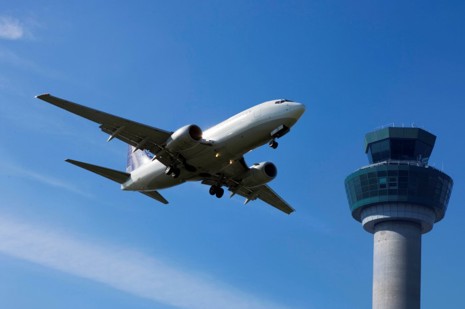
By Willie Walsh, IATA's Director General
The recent meltdown of the UK’s air traffic management system was a disaster for passengers attempting to travel to, from and through the UK on the August bank holiday, one of the busiest travel days of the year. Close to 2000 flights were cancelled, and many thousands more delayed, affecting hundreds of thousands of passengers. Our first thoughts, as I said at the time, were for all the passengers, and the aircraft crews and ground staff, who suffered stress and inconvenience. The first priority for airlines was to clear up the mess caused by UK NATS. Now that has been achieved, attention needs to turn to some key questions. Namely, what happened, and how can we ensure it never happens again?
NATS’ own report into the cause has confirmed that a single rogue piece of data brought down the system. Specifically, a flight plan processing sub-system was paralyzed by a flight plan with two identically-named waypoint markers 4,000 miles apart. This resulted in a ‘critical exception’ whereby both the primary system and its backup collapsed or as NATS comically puts it, “entered a fail-safe mode” (see full NATS report). I’m sure that NATS will remedy this IT failure quickly. It has a significant capital investment program funded by some of the highest air navigation charges anywhere in the world, so lack of money is not the issue here. In any event, management has some serious explaining to do, including what other critical vulnerabilities might still be in the system.
While the catastrophic failure of 28 August has shone a light on NATS, the truth of the matter is that Air Navigation Service Providers (ANSPs) across Europe get away with poor performance every day of the week. These are monopoly service providers. Economic history confirms what we see in ANSP performance—monopolies devolve to the most minimum standard of service unless they are strictly regulated. As long as ANSPs have no consequences to their mistakes, they will struggle to improve. As it currently stands, the system is essentially rewarding failure. Delays continue to increase, environmental targets are missed, and still charges for the “service” rise.
One of the solutions would be to finally implement the Single European Sky. But let’s be honest, that isn’t happening any time soon, even if the compelling promise of a 10% reduction in emissions should be irresistible. EU states can’t even agree to strong performance targets and independent regulation of their own ANSPs, much less accept cross-border rationalization and efficiencies. We will continue to push for change, but in the meantime, we have to explore other avenues. One of those is the cost of helping passengers when ANSPs are at fault for service failure.
The NATS failure was a case in point. Even the ever-generous EU 261 passenger rights regulations don’t make airlines pay compensation for “extraordinary circumstances” beyond their control. But even though airlines do not owe compensation, that did not mean the system breakdown is not going to cost them. On the contrary, the costs could easily top GBP100 million. That’s because passengers get money for care and assistance, including food, travel and hotel expenses. Other costs from crews out of position and extra flights having to be laid on to clear the backlog also mount up. And under the present system, NATS, who were responsible for the entire fiasco, don’t have to pay a penny. Indeed, the NATS report actually states that “It is not within NATS’ remit to address any wider questions arising from the incident such as cost reimbursement and compensation for the associated disruption; no discussion of this is included in this report or the ongoing NATS investigation.” That is surely wrong.
Following Brexit, the UK has an opportunity to fix this problem by implementing some of the proposed changes to EU 261 that were drafted a decade ago. Specifically, there is a need for shared accountability across the value chain to ensure that airlines are not left footing the bill for operational disruption that they have no influence over. Across Europe as a whole, Regulation 261 costs airlines in the region of EUR5.8 billion a year, a significant share of which is due to delays related to air traffic control. An effective and meaningful right of redress for airlines was an important element of the proposed reform package and the NATS meltdown merely highlights that change is needed more urgently than ever.
The aim of passenger rights regimes should not be merely to recompense people where they have suffered loss. They should provide an incentive to improve the performance of the system. If EU261 and its British equivalent were modified to ensure that those responsible for poor service take a financial hit with payments to those affected, there would be a real incentive to better performance. And that would help to make up for the reluctance of governments to properly regulate these monopolies.
The failure of 28 August cannot be dismissed as a ‘one-off’. It should be considered as merely the most egregious example of the ongoing failure of air navigation services across Europe. But when will the politicians act?